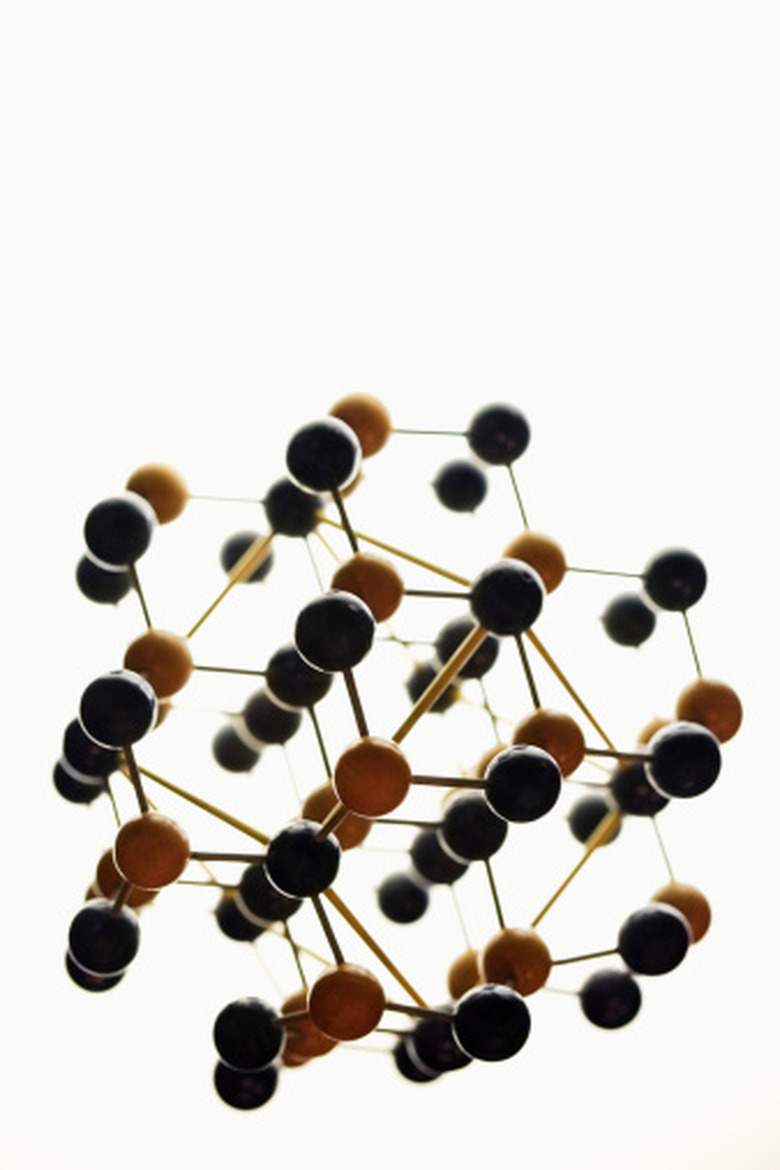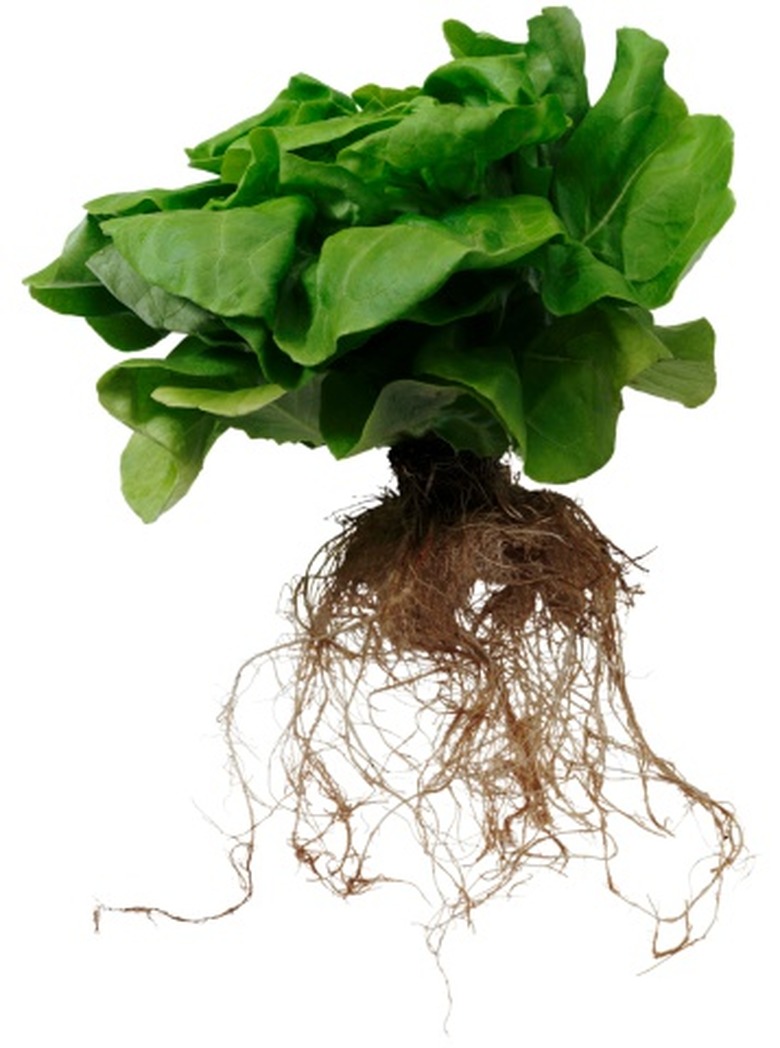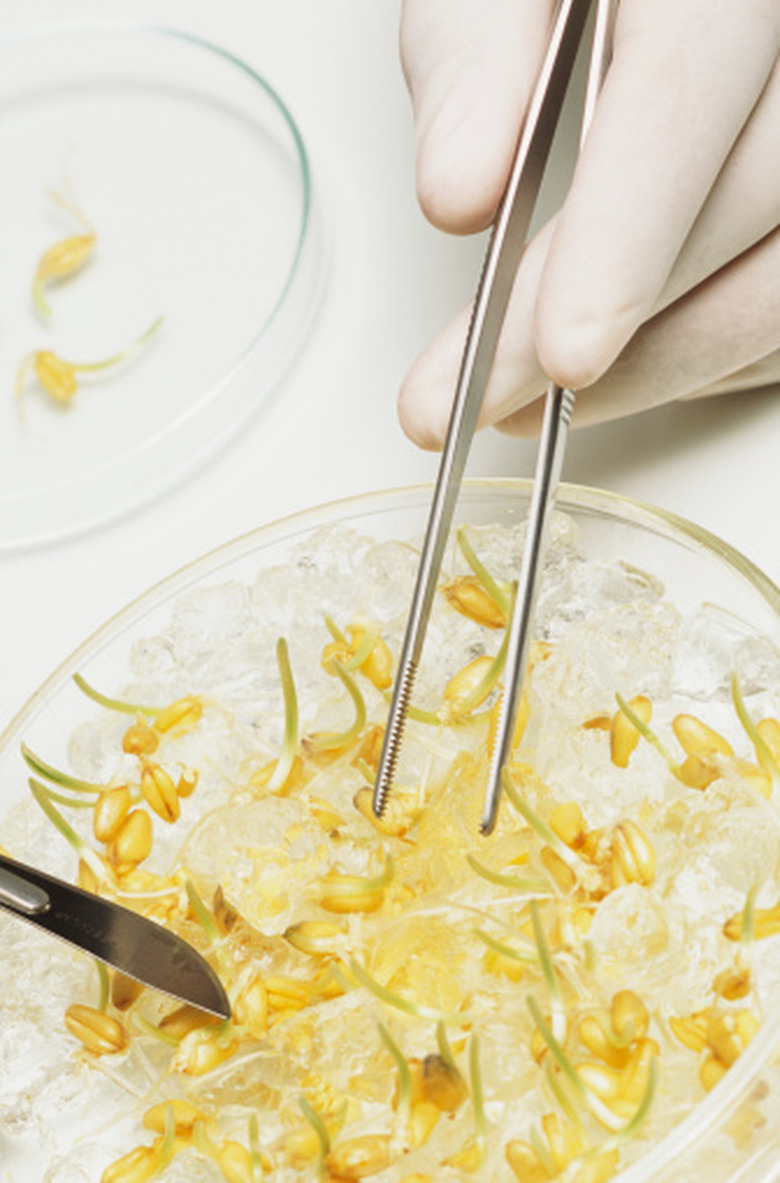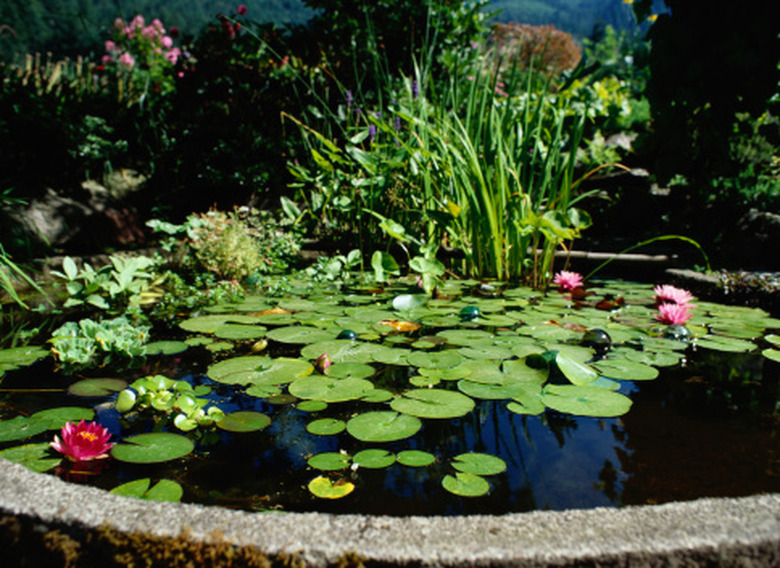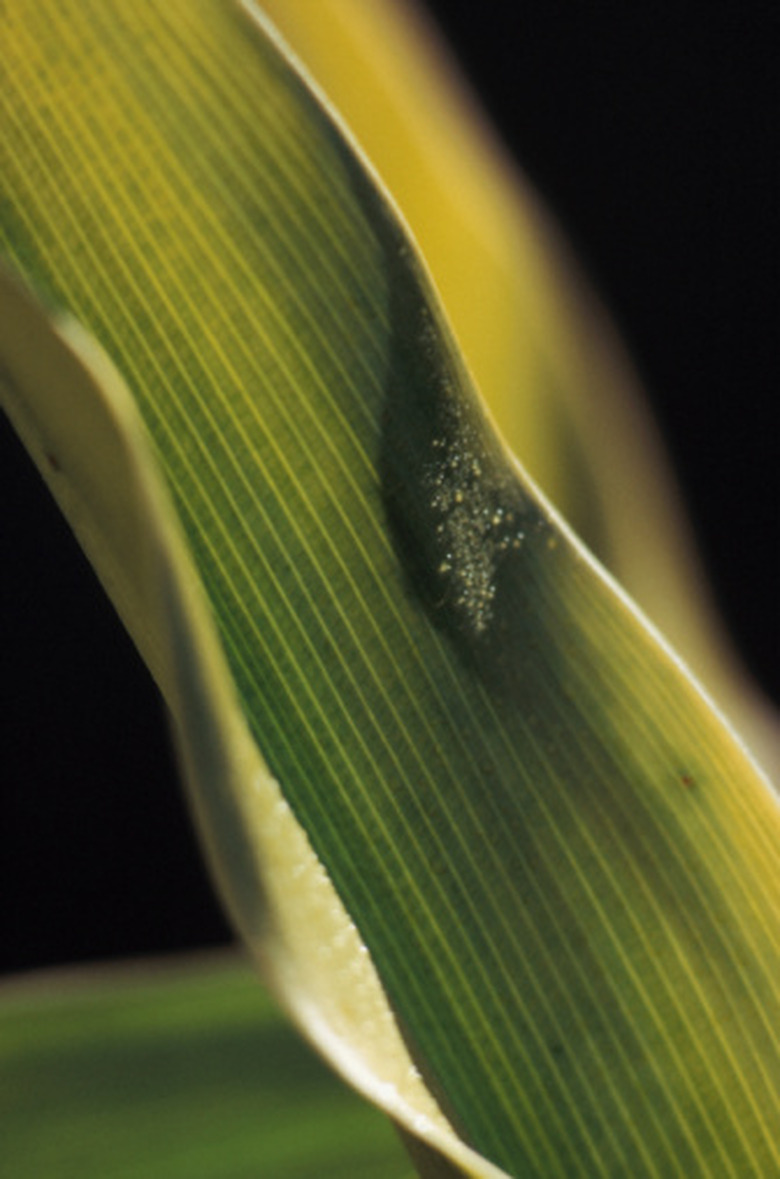Hydrogen Peroxide As A Fertilizer For Plants
Hydrogen peroxide is an organic, naturally occurring chemical. It consists of two hydrogen molecules and two oxygen molecules (H2O2). It has one more oxygen molecule than water. Hydrogen peroxide is best known for its medical uses but also has many uses in the garden.
Healthy Roots
Plant roots must have oxygen to stay healthy. Oxygen helps the root system absorb nutrients from the soil. Hydrogen peroxide makes a good fertilizer because of the extra oxygen molecule. The extra molecule provides more oxygen to the plant root, enabling the root to absorb more nutrients from the surrounding soil. Using hydrogen peroxide will also help prevent root rot. Root rot happens when plant roots are left in standing water that has low levels of dissolved oxygen.
Seed Germination
Hydrogen peroxide helps seeds germinate more quickly. The extra oxygen molecule softens the seed wall. Soak your seeds in a 3 percent solution of hydrogen peroxide for 30 minutes. Rinse the seeds thoroughly with water and plant. Using hydrogen peroxide will shorten the time it takes for a seed to germinate. More seeds will germinate because the hydrogen peroxide will also kill off certain pathogens that are found on the seed coat.
Hydroponic Gardens
The level of dissolved oxygen in water goes down when the temperature of the water is raised above 70 degrees Fahrenheit. Hydroponic plant roots need oxygen to take up the nutrients that are suspended in a hydroponic growth solution. Adding hydrogen peroxide to the nutrient solution will increase the level of dissolved oxygen in the water. Using hydrogen peroxide in a hydroponic garden will help plants take up the nutrient solution, while keeping the nutrient solution warm enough to promote plant growth.
Keeping the Pests Away
Hydrogen peroxide can be used as a pesticide for certain insects and plant pests. Spraying the leaves of the plant with a solution of hydrogen peroxide and water will reduce the insect population in your garden because it will kill off the eggs and larvae left by adult insects. Hydrogen peroxide will also kill bacteria that grow on fruits and vegetables.
